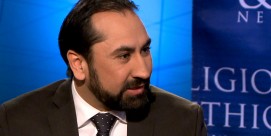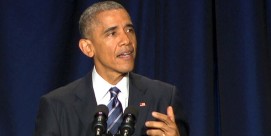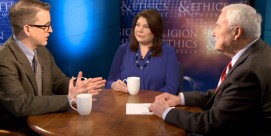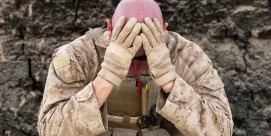Anthony F. Lang Jr: Authority, Afghanistan, and Obama
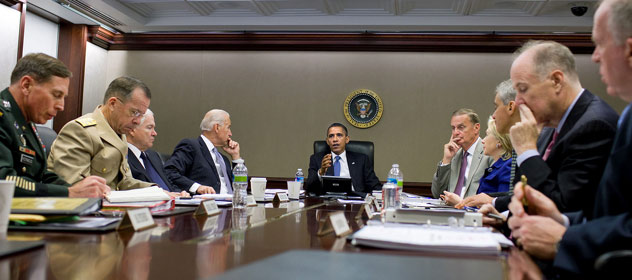
When President Obama fired General Stanley McChrystal as force commander in Afghanistan, at one level he simply exerted his constitutional authority as commander in chief of the US military. Military officers serve at the pleasure of the president. But at a deeper level, the decision shines a light on the complexity of authority in warfare, and it is at this deeper level that the just war tradition can be of some help.
For a war to be just, one of the fundamental criteria remains that it be waged by the proper authority. For some philosophers, this criterion has receded in importance in place of just cause or right intention; such positions tend to reflect the increasingly cosmopolitan sentiments of philosophers who write on ethics and international affairs. They no longer believe that the nation state can provide proper authority in any context, so there is no proper authority criterion any longer.
Yet the just war tradition has long been focused on the centrality of authority. From Augustine of Hippo in the fourth century through Thomas Aquinas in the thirteenth century to Hugo Grotius in the seventeenth century, the decision to use violence must be disciplined by the fact that only legitimate authorities can use this most coercive of methods of politics.
And no single criterion can trump any other. The just war tradition forces us to think about all of the criteria at the same time—just cause, right authority, right intention, etc. To privilege one above the other distorts the essentially political nature of the tradition.
Determining the proper authority in using force remains a central part of determining whether or not the use of force is just. This brings us back to the current controversy. General McChrystal, at least according to this week’s article in Rolling Stone, had cultivated a reputation for being a maverick. From his days at West Point to his current post, he preferred “getting the job done” to kowtowing to formal rules and procedures. His staff seemed to reflect this attitude, as they were focused on “winning” over being diplomatic or respectful of civilian authority.
This approach plays well in American political culture. It reflects the belief that pragmatic solutions to complicated political problems require cutting through bureaucracy. It also reflects the “Jacksonian” approach to foreign policy described by foreign policy expert Walter Russell Mead: use overwhelming force when threatened and don’t worry about the consequences.
But in this particular war, that attitude creates multiple problems. General McChrystal helped put into place the COIN [counterinsurgency] strategy that relies on creating a political order in Afghanistan that will be accepted by all. Indeed, McChrystal worked hard at ensuring that Afghanistan President Hamid Karzai would be acceptable to the American administration; that is, he understood the importance of creating an authoritative political structure.
Yet McChrystal also resisted the authority of his own command structure, and from the evidence of the magazine article he seemed to encourage a staff culture in which winning was more important than respecting political authority.
Can the just war tradition help us here, too? It helps in that it forces us to think carefully about whether winning or respecting authority is more important in this conflict. If the justness of the cause is paramount, McChrystal is right: the only criterion is whether or not the US can win. But if President Obama is right, then it matters who is making decisions. It matters that the US has a system in which civilians dictate decisions to military commanders. It matters that the political system is one in which the populace elects someone who appoints military commanders. It matters that the decision to put young men and women in harm’s way is not based solely on whether the cause is just, but whether there is someone who is making that decision who is responsible to a population that has a choice in an electoral contest.
Just wars require right authorities. President Obama is the right authority. For now, at least, his decision conforms to the standards of the just war tradition. One can only hope that he and others in his administration continue to reflect on whether or not this war is just.
Anthony F. Lang Jr. is senior lecturer in the School of International Relations at the University of Saint Andrews, where he teaches on ethics and the use of force.



